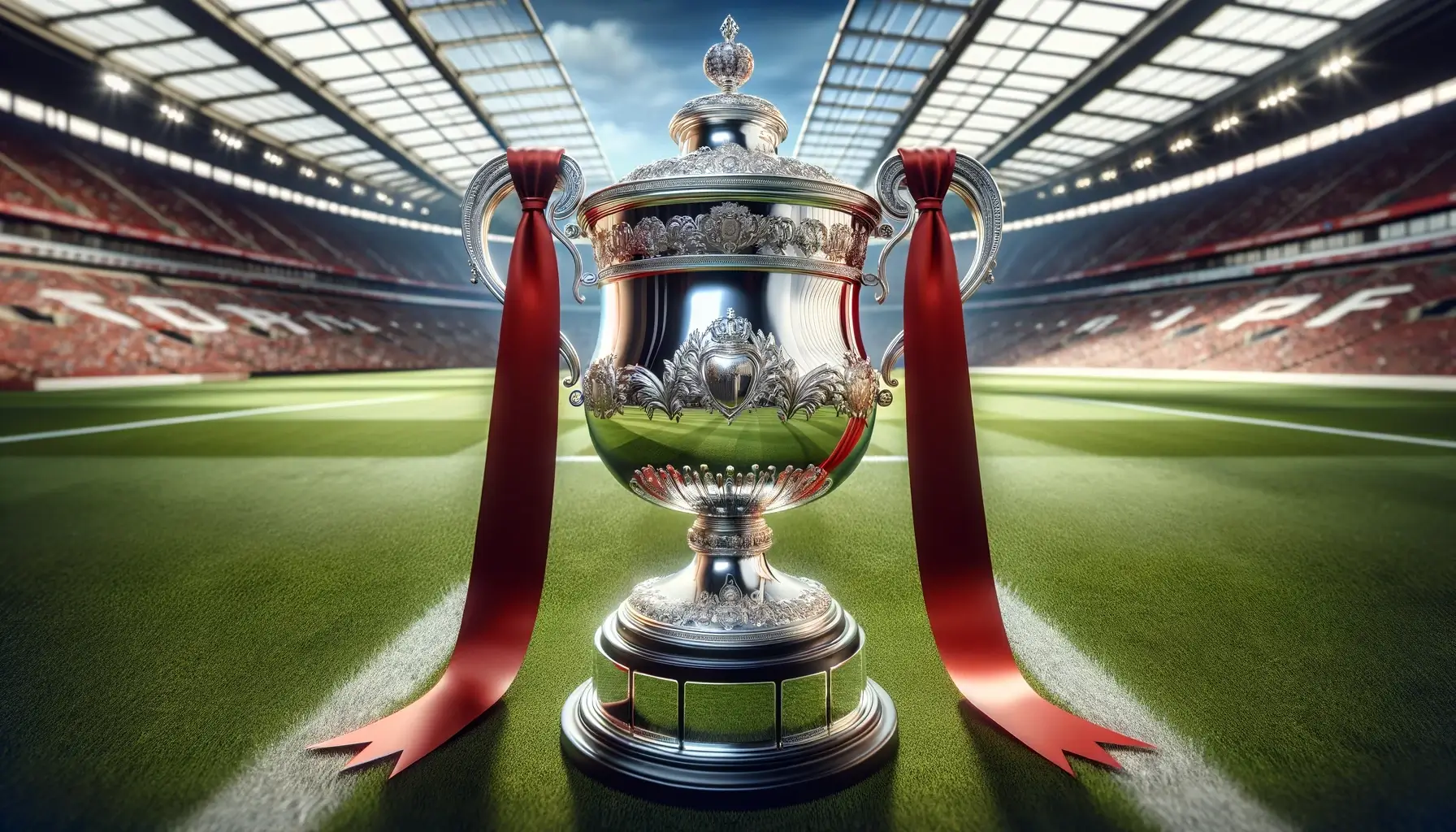
The Birth of the FA Cup
The FA Cup owes its existence to the vision and determination of Charles W. Alcock, the Secretary of The Football Association (FA). In the early 1870s, football was nascent, with local friendlies being played and few teams travelling for matches. Alcock believed that the burgeoning sport needed a unifying competition to bring together clubs from all over the nation.
On July 20, 1871, Alcock proposed the creation of an FA Challenge Cup for all FA clubs to compete in. This bold idea was quickly accepted, and the rules for the knockout competition were agreed upon.In 1871, the FA Cup was born with 15 out of 50 FA clubs participating in the first edition, beginning on Nov 11.
The Magic of the Cup
Over the years, the FA Cup has earned a prestigious reputation within English football, enchanting players, teams, and supporters alike. This esteemed tournament transcended its role as a mere sporting event. The FA Cup: A grand stage for improbable feats, heroic displays, and enchanting moments to converge in a mesmerizing spectacle.
As the FA Cup’s story unfolded, a captivating theme emerged: the phenomenon of “giant-killing.” In 1894, Notts County, a Second Division team, upset the First Division’s dominant Bolton, exemplifying the FA Cup’s allure.
The impact of this improbable win was seismic, rippling through the footballing world and signaling the dawn of a new era where even the seemingly unattainable was within reach. This spirit of defiance against established hierarchies gained momentum in 1901, when Tottenham Hotspur, a team from the Southern League, secured the FA Cup in a momentous accomplishment that cemented their place in the tournament’s revered chronicles.
Football Association Cup’s reputation soared as underdogs emerged victorious, dethroning established powers in a historic upset. These historic moments forged the FA Cup’s legacy, securing its standing as a revered institution in English football’s tapestry.
The Wembley Era
In 1923, the FA Cup final at Wembley’s Empire Stadium captivated the nation’s attention. The FA Cup’s prestige was elevated with the construction of a grand stadium to host the final, able to hold the countless fans eager to attend. Days before the Bolton Wanderers and West Ham United final, the stadium’s completion heightened anticipation and elevated the occasion’s grandeur.
This milestone solidified the FA Cup’s cultural significance, propelling its impact on the national consciousness. Fans filled the stadium, creating a powerful bond between the FA Cup, the venue, and the essence of English football. This synergy would endure through the decades, fostering a legacy that would be woven into the very fabric of the sport.
The Empire Stadium at Wembley, with its iconic architecture and historic significance, became inevitably linked to the FA Cup, serving as a testament to the tournament’s enduring importance in the nation’s sporting heritage. However, the demand for entrance overwhelmed the stadium, with spectators spilling onto the field. The intervention of mounted police and George Scorey and his horse, Billy, gradually cleared the field, allowing the game to proceed. The “White Horse” final remains one of the most iconic moments in sporting history.
Wembley and The FA Cup Final became inseparable, with each adding to the other’s prestige. In 1927, Cardiff City became the first and only club to take the cup out of England when they defeated Arsenal. This historic final was also the first to be transmitted live on national radio. Television arrived in 1938, broadcasting the final between Preston and Huddersfield.
The Upsets and Surprises
While Wembley hosted the FA Cup’s dramatic conclusions, the tournament remained a breeding ground for surprising upsets. 1933 saw Walsall, a Third Division (North) team, achieve a shocking victory against Arsenal! The reigning First Division champions, leaving the footballing world stunned.
This incident exposed the intense pressure and raw emotions of the FA Cup, while also highlighting managers’ unwavering drive for success. The match’s surprising result left a lasting impact on the FA Cup’s legacy, demonstrating its ability to evoke intense emotions of victory and defeat.
Post-War Revival
In the aftermath of World War II, the appeal of football experienced a resurgence, and the FA Cup remained a prominent source of enthrallment for spectators. Amidst this resurgence, the year 1949 witnessed yet another astonishing upset in the tournament’s history. Yeovil, a team hailing from the Southern League, achieved a stunning triumph over Sunderland, a club renowned for its financial might and revered with the sobriquet “Bank of England”.
This unexpected victory sent shockwaves throughout the footballing world, akin to the seismic impact of previous upsets in the competition’s storied past. Yeovil’s unexpected victory over Sunderland exemplified the FA Cup’s enchanting allure, where underdogs can create lasting memories of triumph. This moment not only solidified the tournament’s reputation as a platform for unexpected twists but also embodied the perseverance’s spirit! The determination that had come to characterize post-war Britain.
The 1953 FA Cup Final
The 1953 FA Cup final was a match that etched itself indelibly into football history, becoming a timeless classic revered by fans worldwide. It featured Stanley Matthews, the nation’s favorite footballer, at the age of 38. Despite an initial deficit, Matthews assisted in a dramatic comeback, crossing for Mortensen to reduce the gap. Then, in the final minute, Matthews orchestrated the fairytale ending, providing the assist for Perry to score the winning goal. This match showcased the drama, excitement, and unpredictability that have always been at the heart of the FA Cup.
The Football Association Cup has evolved over the years, but its essence remains the same. A symbol of footballing passion, dreams, and the enduring spirit of the game. From its inception as a unifying competition for English football to its global popularity as the world’s cup final. The FA Cup has left an indelible mark on the sport. It has given fans countless moments of joy, heartbreak and inspiration. Also it continues to be a celebration of the beautiful game and all that it represents. The FA Cup truly encompasses all human life in the world of football.



